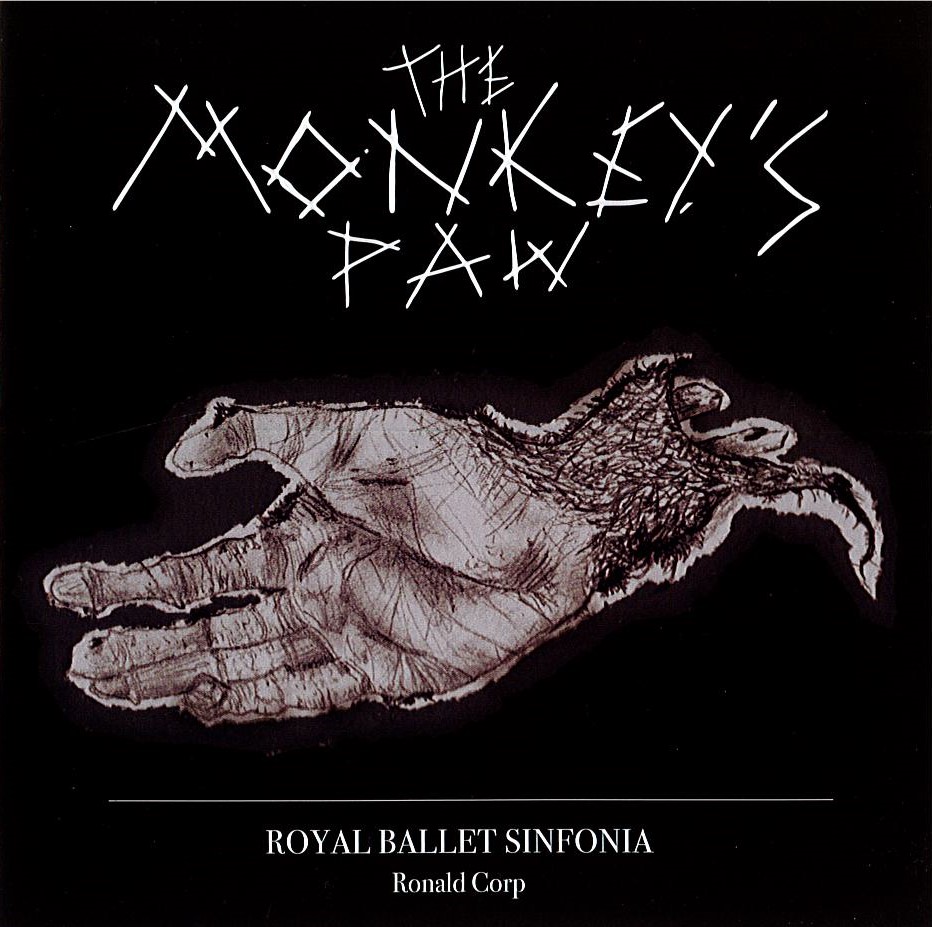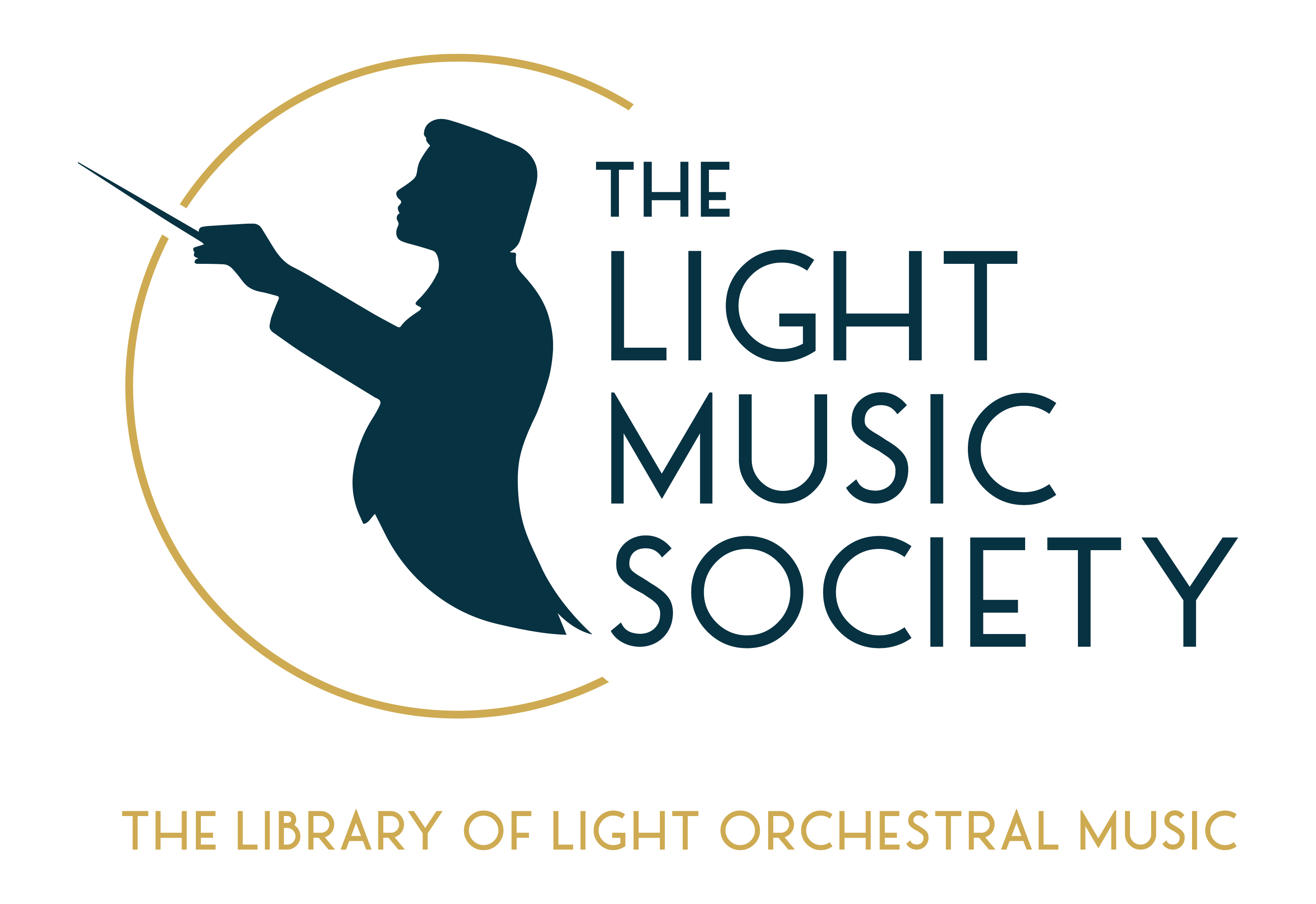Marcus Farnsworth, Lesley-Jane Rogers, David Webb, Freddie Long, Neal P. Thomas
Royal Ballet Sinfonia
Conductor: Ronald Corp
CARMA Records 003
First things first: Light Music this ain’t. However, if your Christmas festivities range from carols round the tree to a winter ghost story (especially when penned by long time LMS members), then you may find this to your liking!
First submitted to the BBC in the 1950s, Carlo Martelli’s opera The Monkey’s Paw languished in obscurity for some time. The piece was at first rejected by the BBC (though they praised its orchestral writing), after which, the libretto was reworked by Martelli and Stephen Thorn into the form we now find on this CD. The piece is subtitled a “melodrama”, which is a fitting description of the heightened and fraught musical and narrative language of the piece. Based on the short story by W. W. Jacobs, the opera is cast in three short scenes (the first slightly longer) joined by orchestral interludes. It tells the story of a family, who, whilst entertaining a guest, a sergeant major, come into possession of an “enchanted” monkey’s paw he was sold on his travels. They are told the paw will grant three wishes, but that the wishes, when granted, will carry a terrible punishment for tampering with fate. Mr. White, the father of the household wishes for £200 to help pay off his mortgage and in so-doing sets in motion a terrible series of events. The book, as does the opera, cleverly sidesteps the notion of a curse of the monkey’s paw. There are no overt supernatural happenings onstage, just a series of awful coincidences that may or may not be connected to the object of superstition. The resulting grief, madness and hysteria are ably conveyed by Martelli’s angular score and by the performances on the recording.
Patriarch Mr. White is portrayed by Marcus Farnsworth, whose varied career to date includes Mozart roles, Strephon in Gilbert and Sullivan’s Iolanthe and some smaller roles in Britten operas. He is as forceful as the character requires here as the conflicted man whose wish seemingly brings misfortune and leaves him doubting his own senses. It is a well-sung performance, but sung more than acted perhaps, meaning that occasional lines in the libretto come across as somewhat “precious” as opposed to the melodramatic feverishness I might have preferred in places. A more fevered performance, of course, might have come at the expense of accuracy in the complex score, so I do appreciate why Farnsworth chooses the approach he does. The choice especially pays off at the end of the second scene in which Mr. White learns that his son has been crushed to death in a horrific factory accident. Farnsworth delivers the understatement of the century line “He was the only one left to us. It is hard” with such a sense of repressed heartbreak that it is enough to send chills down the listener’s spine.
Lesley-Jane Rogers, previously heard both in recordings of Martelli’s The Curse of Christopher Columbus and as the child lead in his Sredni Vashtar, here plays Mrs. White. Rogers’ voice is of a youthful quality, which lent itself perfectly to the young protagonist role in Sredni Vashtar. It doesn’t immediately strike one as the kind of voice one would associate with an older mother character, but she rises admirably to the challenge, capturing the insane grief that the character experiences toward the end of the piece with suitably unsettling aplomb. Furthermore, she is able to instill even the most challenging passages of Martelli’s score with a sense of lyricism, which suits the music very well. Her shrieking performance in the opera’s last moments (exasperated and horrified by the actions of her husband) helps give the finale a stomach churning intensity.

David Webb is very convincing as the young, headstrong and somewhat excitable son of the White household, John, and Freddie Long imbues his performance of Sgt. Major Morris with a compelling sense of dread. It is interesting to hear the two play off one another in the opera’s opening scene, the somewhat star-struck John excited to hear tales of adventure, while the world-weary adventurer is burdened with guilt and fear, the ranges of their voices exploited to great musical effect. In some ways it is a shame they’re only in scene 1, but there wouldn’t be much of a story otherwise! A similarly brief but effective character is named simply “A Stranger”, who appears in scene 2 with some devastating news. The characterisation is effective on the level of accent, meaning that we instantly understand who he is and where he has come from, but the delivery overall felt rather too matter-of-fact, which somewhat undercuts the nervousness of the character described in the libretto earlier in the scene.
The score never abandons a sense of tonality and there are a handful of memorable motifs around which most of the work is constructed. That said, it is an extremely chromatic work and in places, hair-raisingly dissonant, but what else would you want from a horror story?! The interludes are very effective in shifting the mood between the scenes as well as giving the orchestra time to shine. The scene setting is exceptional and the score captures a sense of rising unease from its almost complete stillness that opens the work to its unsettled climax, which cleverly marries major and minor chords to jarring dissonance to communicate the emotional ambiguity of the tale.
The sound on the recording is exceptional and thanks as always to producer Philip Lane, engineer Mat Bertram and editor Phil Hardman for this superlative listening experience.
As operas on supernatural and macabre themes go, this one certainly belongs on the same shelf as Phyllis Tate’s The Lodger and even Britten’s Turn of the Screw. Its storytelling is direct and succinct, the chamber setting creating an effectively claustrophobic work that I can imagine being staged very effectively. Maybe one day…!
DA

Leave a Comment
I hope you enjoyed this post. If you would like to, please leave a comment below.